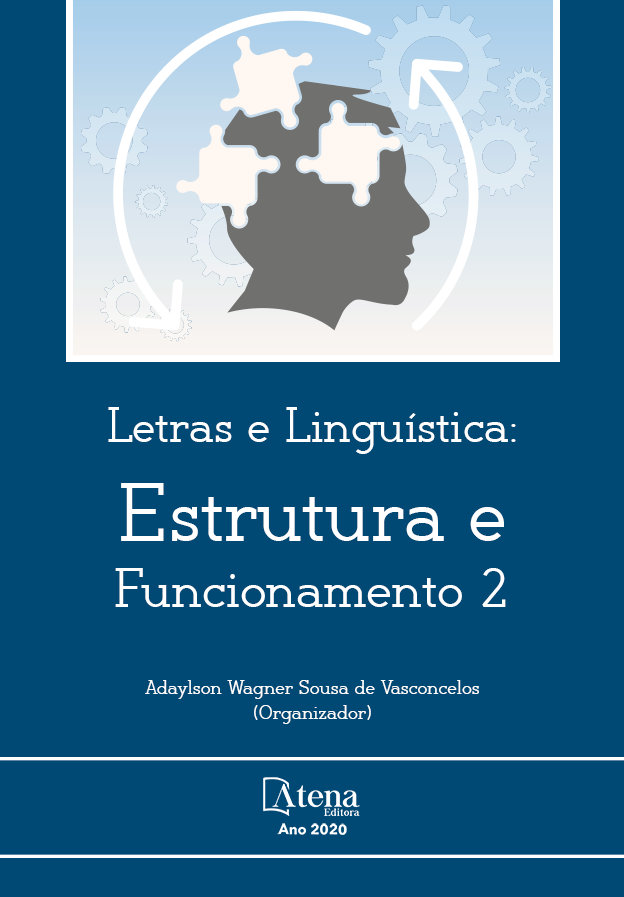
QUANDO A “PUREZA” DA LÍNGUA FORJA A “IMPUREZA” DOS FALANTES NÃO NATIVOS
Este artigo objetiva analisar os sentidos e as implicações da noção de identidade “pura” da língua, em textos tecidos em práticas discursivas no âmbito do ensino de inglês. A partir dos estudos de Hall (2006), realizo uma intersecção entre a Linguística Aplicada – dialogando com os postulados de Schmitz (2013), Palma (2011), Agier (2019), Coracini (2003) e Rajagopalan (2005) – com os Estudos Críticos do Discurso, ancorado nos escritos de Fairclough (2001) e van Dijk (2018). Trata-se de uma pesquisa qualitativa de análise interpretativista, que percorreu o seguinte caminho metodológico: (1) estudo bibliográfico; (2) busca de produções textuais, na internet, relacionadas ao ensino de inglês, a saber: anúncios de cursos, anúncios de emprego para professores e videoaulas. Os elementos linguísticos dessas produções foram transcritos e os não linguísticos foram devidamente descritos, para fins de análise. Os dados revelam que esses discursos estão atravessados pela noção da identidade essencialista do inglês como língua pura, (re)produzindo o binarismo falante nativo versus falante não nativo. Nesse viés, o falante nativo seria o dono e o falante legítimo da língua, excluindo-se, dessa concepção, quaisquer outros indivíduos, povos, países, culturas e variantes linguísticas – vistas, num viés manipulador, como identidades impuras – que não se enquadrariam na categoria “nativo”. À essa concepção subalternizadora subjazem ideologias globais discriminatórias e assimetrias de poder, contra as quais devemos lutar, na perspectiva do respeito à diversidade, aos direitos humanos e à dignidade de todos os seres humanos no Planeta.
QUANDO A “PUREZA” DA LÍNGUA FORJA A “IMPUREZA” DOS FALANTES NÃO NATIVOS
-
DOI: 10.22533/at.ed.49820061016
-
Palavras-chave: Ensino de inglês. Práticas discursivas. Identidade. Falante Nativo. Falante não nativo.
-
Keywords: English teaching. Discursive practices. Identity. Native speaker. Non-native speaker.
-
Abstract:
This article aims to analyze the meanings and implications of the notion of “pure” identity of a language, in texts conveyed in discursive practices in the context of teaching English. Based on Hall's studies (2006), I make an intersection between Applied Linguistics – in dialogue with the postulates of Schmitz (2013), Palma (2011), Agier (2019), Coracini (2003) and Rajagopalan (2005) – with Critical Discourse Studies, anchored in the writings of Fairclough (2001) and van Dijk (2018). This is a qualitative research of interpretive analysis that followed this methodological path: (1) bibliographic study; (2) search for textual productions, on the internet, related to English teaching: course announcements, job advertisements for teachers and video classes. The linguistic elements of these productions have been transcribed and the non-linguistic ones have been properly described for analysis purposes. The data reveal that these discourses are crossed by the notion of an essentialist identity of English as a “pure” language, (re)producing the binarism of native speaker and non-native speaker. In this perspective, the native speaker would be the owner and the legitimate speaker of the language, excluding from this conception any other individuals, peoples, countries, cultures and linguistic variants – seen, from a manipulative point of view, as impure identities, that would not fit in the “native” category. This conception that produces subordinating roles is subjected to global discriminatory ideologies and asymmetries of power, against which we must fight, in the perspective of the respect for diversity, for the human rights and for the dignity of all human beings on Earth.
-
Número de páginas: 15
- Marildo de Oliveira Lopes


